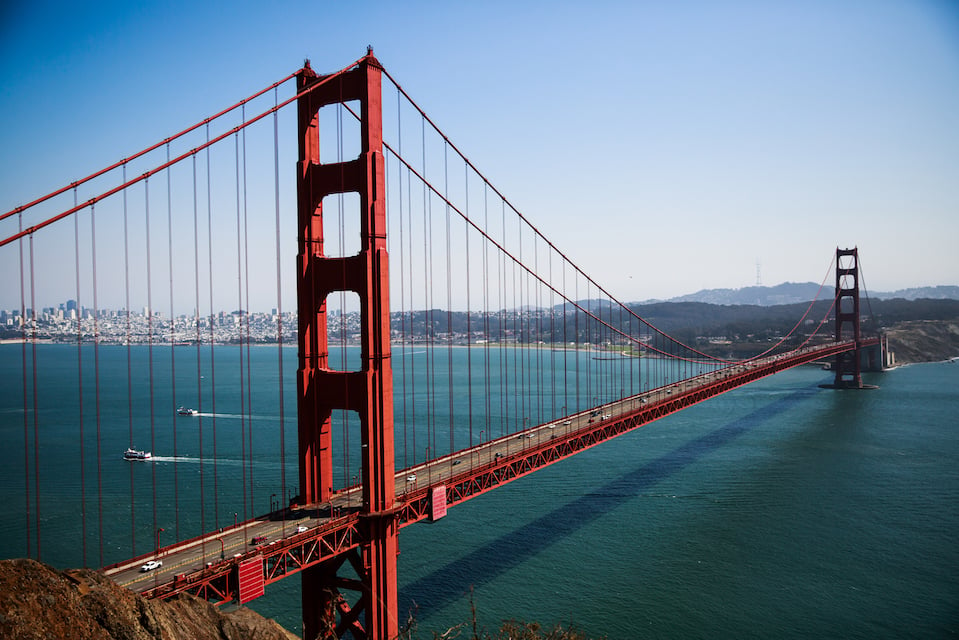Full text:
HAYWARD — While the 28-foot cross that the Lions Club erected on public land atop Albany Hill 52 years ago may seem like an obvious violation of the Constitution’s “Establishment Clause” that is widely interpreted as requiring a separation of church and state, the community service group’s lawyers have gone to court to argue that city officials failed to find a solution that preserved the Christian symbol — without ever genuinely entertaining efforts to compromise.
A trial kicked off Tuesday to decide whether local officials had the right to remove the controversial steel and plexiglass cross last month, culminating in four hours of witness testimony and a host of legal objections at the Hayward Hall of Justice.
Instead of justifying the cross’ removal, attorneys representing the city of Albany called no witnesses, submitted no exhibits and asked scant questions during testimonies “because it’s (the Lions Club’s) challenge.”
Rather, Albany’s legal team asked one question to each of the three witnesses that took the stand Tuesday: did they make an effort to oppose the Albany City Council’s unanimous decision to acquire the land under the cross by eminent domain at their April 2022 meeting? No one said “yes.”
Early on June 8, the city quietly removed the electrically illuminated cross, which the Albany Lions Club installed in 1971 on then-private land. The quiet removal was Albany’s attempt to finally allay accusations of constitutional violation, address residents’ resentment about one religion being given preference over others, and free up more space on the 1.1-acre plot of what is now public park space.
A federal judge and the 9th U.S. Circuit Court of Appeals previously ruled that the cross violates the establishment clause of the First Amendment because governments are forbidden from promoting one religion over another, but the structure sat on an easement granted to the Lions Club to ensure its preservation.
But at Monday’s trial, Lions Club’s attorneys Robert Nichols and Richard Covert effectively doubled down on the cross’ overt Christian symbolism and message; they argued that the cross’ perch on the hill has historically been a sacrosanct destination for church services, memorials, weddings and everyday prayer for the local Christian community, including the roughly dozen “Friends of the Cross on Albany Hill” who gathered outside of the courthouse Tuesday morning to show their support.
Kevin Pope, president of the Albany Lions Club, and Dorena Osborn, the granddaughter of the Lions Club member who installed the cross, both testified that the cross was a “sacred location” for Christians to worship, pray and see a symbol of Jesus Christ’s death, resurrection and love.
Nichols argued the city had an obligation not to burden religious practices like the ones on Albany Hill unless there were no other alternatives.
Technically, Albany could have skirted constitutional problems by selling the land under the cross to the Lions Club, but Mayor Aaron Tiedemann said the decision to get rid of the Christian symbol altogether was more aligned with values of many in the current community, who have long complained that the cross symbolizes a preference of one religion over others, offends some members of the city’s diverse communities, is reminiscent of KKK cross-burnings in the East Bay hills in the 1920s, and is an eyesore.
However, the defense submitted transcripts of past council meetings, Facebook posts and city documents into evidence that they allege show how past and present councilmembers did not facilitate any debate about the trade-offs of the controversial decision. Instead, they claim the city’s public actions regarding the cross — including requesting that PG&E shut off power to the structure — were a “sham and charade” because they simply wanted to move forward with its removal from the park, which the attorneys argued was a publicized goal since at least 2016.
Nichols contended those preconceived notions were on display during the April 2022 meeting. While the Albany City Council had a robust discussion on the cost, style and necessity of police cars, when the vote regarding the cross came up, Tiedemann only recited a pre-written motion about the eminent domain lawsuit without any followup by his colleagues.
The attorneys representing the city, Andrew Saghian and Scott Ditfurth, repeatedly objected to dozens of items of evidence and questions posed by the Lions Club attorneys, arguing issues of hearsay, relevance, authenticity, legislative privilege and foundation. The issues in question were all sourced from city documents, but the lawyers said the Lions Club often failed to authenticate or adequately frame the information shared in court.
Judge Somnath Raj Chatterjee was generally split on the lawyers’ arguments, but ultimately sustained a number of the challenges. He will rule on a final list of accepted exhibits after both legal teams file briefs in the coming weeks.


